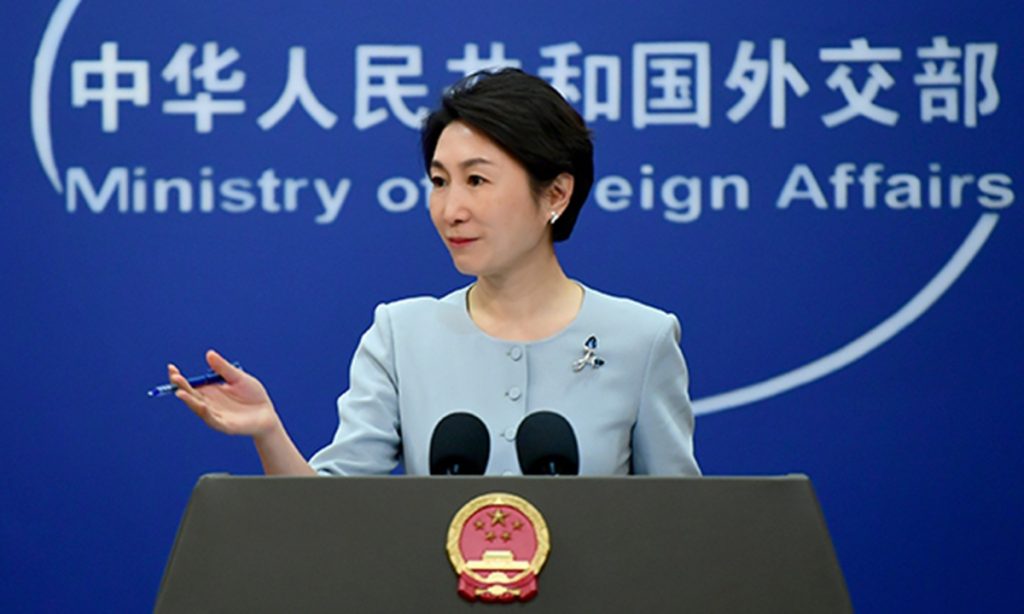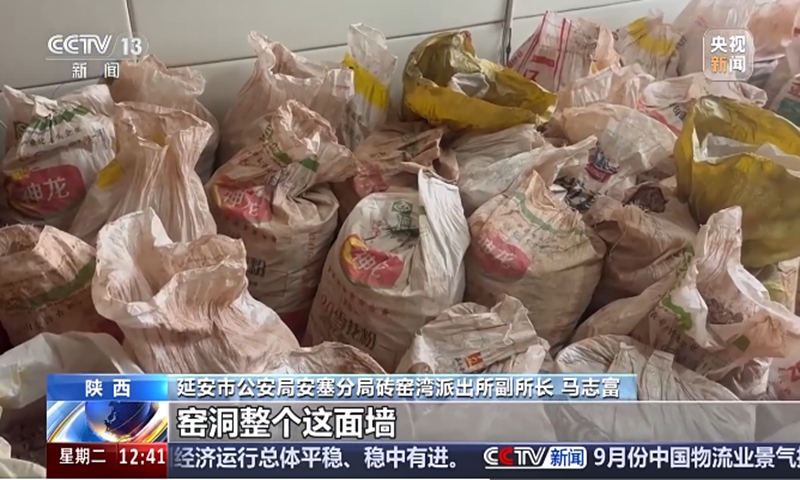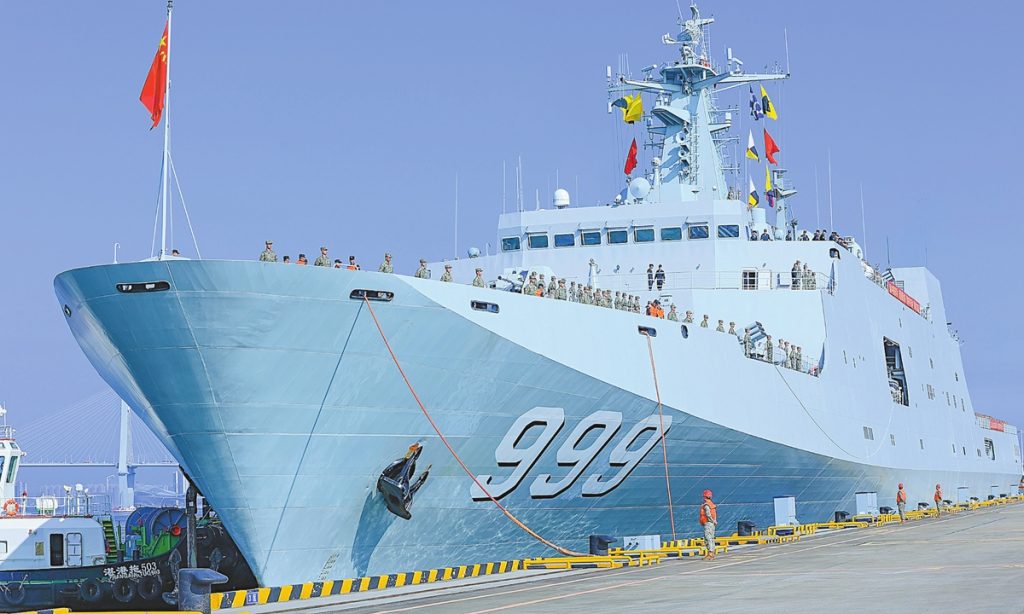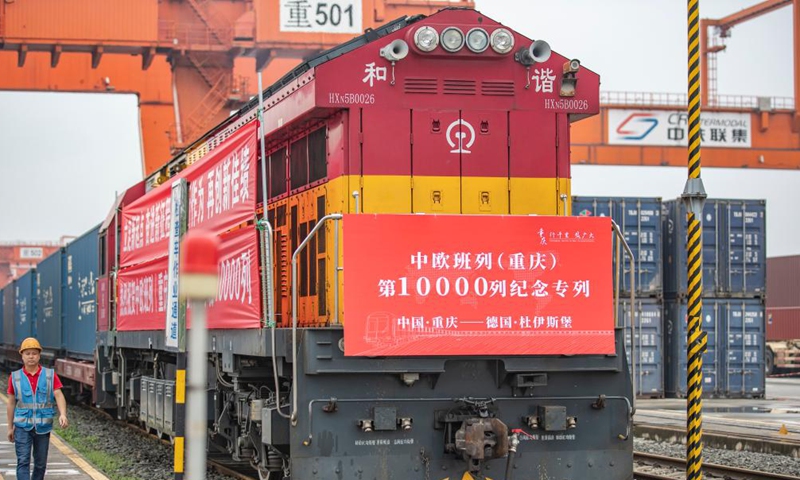Lai Ching-te authorities willing to turn Taiwan into a battleground: spokesperson of Taiwan Affairs Office
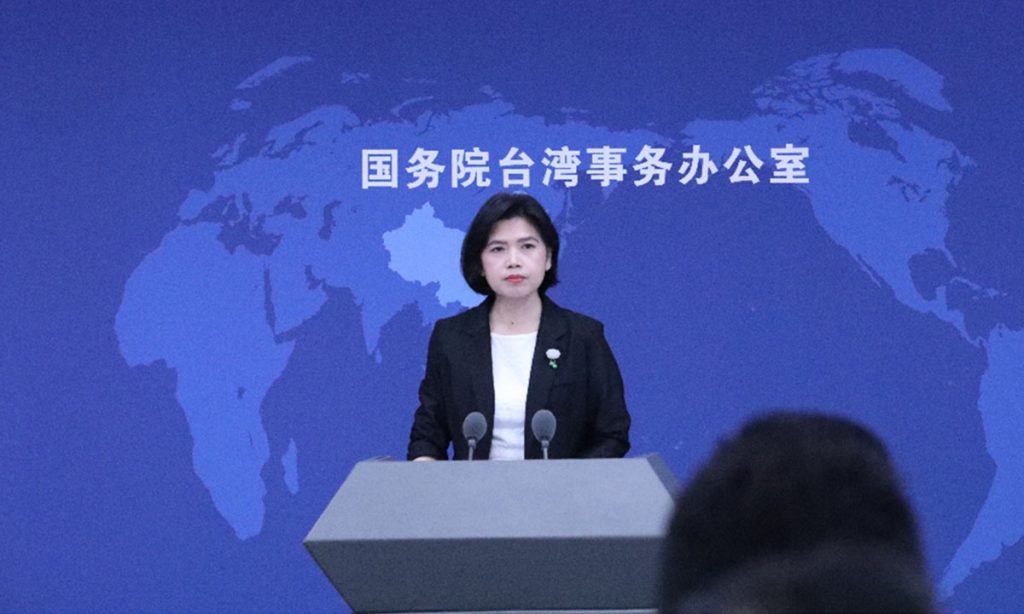
Spokesperson from the State Council’s Taiwan Affairs Office on Wednesday responded to recent provocative remarks by a member from the Democratic Progressive Party (DPP) authorities that hyped cross-Straits conflict, saying that such remarks once again reveal the true intentions of Lai Ching-te authorities, which, for their own selfish interests, are willing to turn Taiwan into a battleground and tie the people in Taiwan to “Taiwan independence” chariot.
Alexander Tah-ray Yui, Taiwan island’s “deputy representative to the US,” said in a recent interview with the US’s Fox News that the Taiwan people are ready if cross-Straits conflict breaks out and he hoped not to require assistance from the US.
Zhu Fenglian, spokesperson from the State Council’s Taiwan Affairs Office, said during the Wednesday press briefing that the remarks once again revealed the ugly face of Lai Ching-te a authorities, which, for their own selfish interests, are willing to make island of Taiwan a battleground and tie the people in Taiwan to “Taiwan independence” chariot.
According to Zhu, the DPP authorities’ recent actions have ranged from allocating a record $20.25 billion for defense spending and buying costly US weapons, to establishing the so-called Whole-of-Society Defense Resilience Committee and promoting the training of 400,000 civilians to support the military. They have also covertly supported the Kuma Academy, even required high school students to sign a “Wartime Youth Service Consent Form.”
These actions demonstrate that the Lai Ching-te authorities are intensifying efforts to “prepare for a war in pursuit of independence,” Zhu said, adding that if they continue to act recklessly, Taiwan will only become more perilous.
Zhu also pointed out that Taiwan people have become increasingly aware of the disastrous consequences of the DPP authorities’ escalating provocations for “Taiwan independence,” which have led to rising tension and instability in the Taiwan Straits. Many of them are now voicing a desire for peace and opposition to “Taiwan independence.”
The DPP authorities must respect the mainstream public opinion on the island of Taiwan, end their pursuit of “Taiwan independence” through force and abandon all secessionist actions, Zhu said.
In response to escalating tensions cross the Straits due to 17 US arms sales to Taiwan region under the Biden administration alone and Chinese People’s Liberation Army (PLA)’s two military drills around the island of Taiwan this year, Zhu said that the DPP authorities’ adherence to a diehard “Taiwan independence” secessionist stance and their collusion with external forces in ongoing provocations for “Taiwan independence” are the root causes of tensions and instability in the Taiwan Straits.
According to Zhu, since taking office, Lai Ching-te has been aggressively trumpeting the new “two states” theory that the two sides of the Straits “are not subordinate to each other,” and deliberately undermining normal cross-Straits exchanges. By attempting to seek “Taiwan independence” through reliance on the US and seek “Taiwan independence” by force, Lai has continuously escalated cross-Straits tensions, pushing the Taiwan Straits to a perilous situation.
The US has persistently played the “Taiwan card,” insisting on arms sales to Taiwan region and “using Taiwan region to contain China,” which repeatedly sends the wrong signals to “Taiwan independence” secessionist forces, emboldening the DPP authorities to make risky provocations for “Taiwan independence,” Zhu said.
The mainland remains committed to maintaining peace and stability in the Taiwan Straits and fostering exchanges and cooperation across the Straits, Zhu said.
Besides, in response to the US’ republican presidential candidate Donald Trump’s proposal to levy additional tariffs of 150 to 200 percent on China in the event of a cross-Straits conflict and to charge Taiwan a fee for US military protection, Zhu said that the US' true intentions regarding Taiwan — whether to “protect” or “harm” it — have already been judged rationally by most Taiwan compatriots.
Taiwan people are aware that the US always prioritizes its “America First” policy, and Taiwan could quickly shift from being a “pawn” to a “discarded piece” if it suits US interests, Zhu said.


